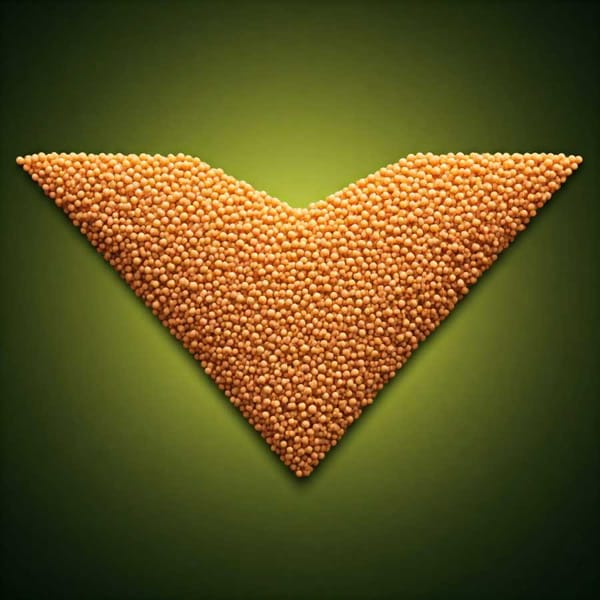100 years after the birth of Isaac Asimov, the titan of science fiction
The Russian-born American author Isaac Asimov is considered one of the most important figures in science fiction literature.

The year 2020 marks 100 years since the birth of Isaac Asimov, considered one of the three great writers of world science fiction, along with Arthur C. Clarke and Robert Heinlein, and one of the most prodigious minds of the 20th century. He wrote more than 500 works, in which he dealt with different modalities, such as history, popularization, and mystery; but he is better remembered for his science fiction works, through which he predicted technological advances and social events that were unimaginable in his time.
Isaac Asimov was born in Petrovich, a town in the former Russian Soviet Federative Socialist Republic; however, he never learned the language of his place of origin, since his parents, who were Jewish millers, emigrated to the United States when he was only three years old. He grew up in Brooklyn, New York, and during his youth, he worked in several of his father's candy stores, where he discovered science fiction through the pulp magazines, where, at the age of 19, he began to publish his stories.
He graduated as a biochemist from Columbia University in 1939, and in 1941 obtained a postgraduate degree in chemistry. The following year his knowledge earned him a job, which would last throughout World War II, within a US Navy shipyard.
The beginning of his literary career was based on the publication of short stories in various media, one of the most important being Virtuous Circle, printed in 1942, in the magazine Astounding Science Fiction, in which his famous Laws of Robotics saw the light for the first time, three "mathematical formulations printed in the positronic paths of the android's brain", which were extended throughout his production and are considered one of his greatest contributions to the world.
In 1950 he published his first novel, A Pebble in the Sky, and a year later saw the light of what would become his most acclaimed work: Foundation, the first installment of the series of the same name, which portrays a society tens of thousands of years in the future, which, ruled by the Galactic Empire, begins to corrupt and stagnate its scientific knowledge.
The other titles in his cosmic saga are Foundation and Empire (1952) and Second Foundation (1953), which together with his first book were awarded the Hugo Prize for the Best Science Fiction Series of All Time in 1966, defeating the also iconic series of The Lord of the Rings by J. R. R. Tolkien and Barsoom by Edgar Rice Burroughs.
In 1982, Isaac Asimov expanded his universe with the publication of The Limits of the Foundation (1982), Foundation and Earth (1986), Prelude to the Foundation (1988), and Toward the Foundation (1993). The success of his books has been such that some have inspired the seventh art, such as Me, Robot, and The Bicentennial Man. In addition, Apple TV+ is preparing a series based on its famous Foundation trilogy.
Asimov was a humanist, rationalist, and militant of the American Democratic Party. He was also an advocate of the application of nuclear energy in civilian life. Also, the Oxford English Dictionary credits him as the architect and introducer to the Anglo-Saxon language of such words as robotics, psychohistory (ability to predict the future through knowledge of the past, human behavior, and statistics), and positronic.
Until the day of his death on April 6, 1992, at the age of 72, he remained active. For 10 years it was believed that his death was due to heart and kidney failure, until in 2002 his widow, Janet, revealed that he had been infected with AIDS in 1983 during a blood transfusion.
Asimov's robotic utopia
Contrary to the laws that should govern robots, established by the author of Russian origin, the "killer" machines are already a reality and now we are seeking to regulate them. Science fiction fans have a must-see Isaac Asimov, one of the three great novelists of the genre from the middle of the last century, along with Arthur Clarke and Robert Heinlein.
Thinking about the world of androids and how to prevent artificial intelligence from making decisions about the life of another human being is a conception that still terrifies us. Moreover, it is an ethical struggle that has the governments of China and the United States (and some others) in a new arms race, this time with killer robots, as if it were a Terminator movie.
But in Asimov's world utopia reigned, androids were the ones who surpassed people's intelligence and sought to enslave humanity, despite the creation of the three laws. Asimov, the son of Russian immigrants, arrived in the United States at the age of three. He is considered the father of the word "robotics", from his most famous work I, Robot, published in 1950.
In this novel, a compilation of stories about humanity and machines includes the vision of the "three fundamental laws of robotics". The first law states that robots cannot hurt humans or let them hurt themselves without taking action. The second stipulates that robots must obey the orders of humans, as long as they do not conflict with the previous point. The last of the laws state that a robot must protect its existence, as long as it does not conflict with the previous two rules.
One hundred years after Asimov's birth, the debate is not about how far artificial intelligence can advance, but about the creation of robots designed to make decisions about other people's lives, a discussion that has been going on for just over two years at the highest levels and that runs counter to the idealization of technology in the American author's laws of robotics.
Since November 13, 2017, the issue was put on the table of the United Nations, at which time a total ban was proposed. The group known as the Convention on Certain Conventional Weapons noted that the proliferation of these devices represents the third arms revolution.
"Once developed, they will allow wars to take on unprecedented proportions and faster than human beings can comprehend. These deadly machines - not people - will decide about life and death," the group said in the conclusions of the week-long meeting in Geneva, Switzerland.
Since then, the discussion is constant at this and other international summits, with efforts that have reached the protests outside the facilities of the most important organizations. Currently, China, Israel, South Korea, Russia, the United Kingdom, and the United States are pioneers in the use of totally autonomous weapons, such as armed drones, remotely controlled by a human. According to a Human Rights Watch article, these countries are investing heavily in military applications of artificial intelligence (AI) to gain a technological advantage in the battlefield autonomy of the next generation.
"These are the same countries that resist the demands of dozens of states calling for a new ban treaty to ensure meaningful human control over the use of force, while disqualifying efforts to regulate killer robots as 'premature' and rejecting concerns that these weapons threaten the right to life and the principles of human dignity, or fail to meet the standards of international law, including the rules of distinction, proportionality, and military necessity," the article details.
Other visions of Asimov
In addition to his texts on robots, Asimov concentrated on space and time travel. His work on time travel is reflected in the saga of The Foundation, made up of 16 volumes that represent a vision of the future from Isaac Asimov's perception of the 1940s, 1950s, 1980s, and the two years he lived in the 1990s.
But the Russian-born author included in his literature the historical narrative, mainly from the war and political point of view, through 14 volumes that told about periods such as the Greek, Egyptian, Roman civilizations, the Middle Ages, the founding of the United States, among other lapses. In addition, in the 1960s and 1970s, he published popular science articles with topics including chemistry, physics, astronomy, biology, history, and mathematics.
La ciencia ficción y la literatura en general eran su pasión, pero también tenía un título universitario en bioquímica, que ejerció apenas un par de años durante la Segunda Guerra Mundial, pues su trabajo literario le dejaba más dinero que el académico.




